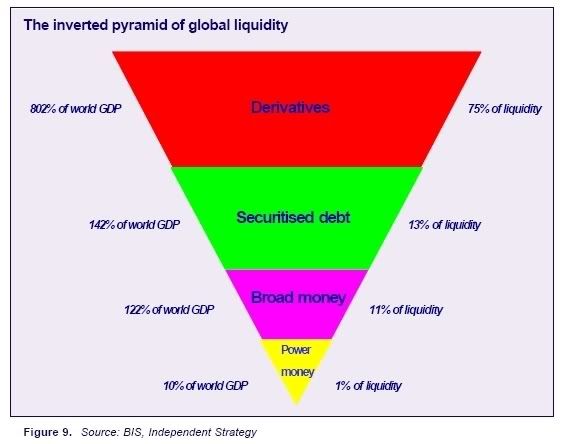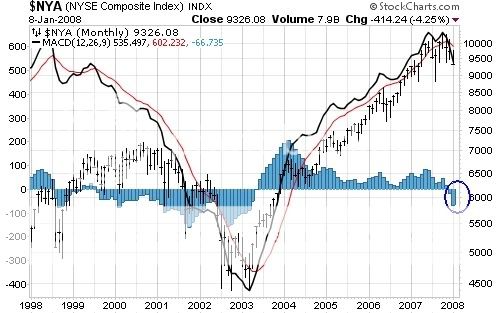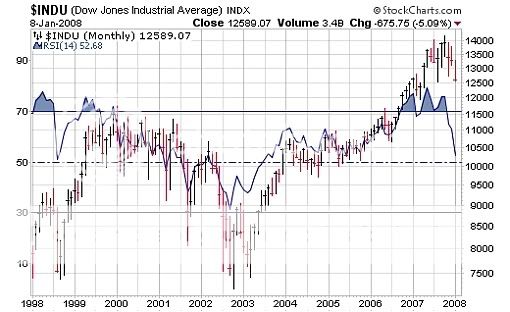Merrill Lynch to Get $6.2 Billion From Temasek, Davis
By Yalman Onaran and Chia-Peck Wong
Dec. 24 (Bloomberg) — Merrill Lynch & Co., reeling from the biggest loss in its 93-year history, will receive a cash infusion of as much as $6.2 billion from Singapore’s Temasek Holdings Pte. and Davis Selected Advisors LP.
Temasek will invest up to $5 billion for a less-than 10 percent stake and New York-based money manager Davis Advisors will buy $1.2 billion of Merrill stock, the world’s largest brokerage firm said in a statement today. Merrill fell 2.9 percent to $53.90 at 1 p.m. in New York Stock Exchange trading, after the firm said Temasek will pay $48 a share, almost 14 percent less than the Dec. 21 closing price.
Merrill Chief Executive Officer John Thain, who took over Dec. 1, joins Citigroup Inc., Morgan Stanley and UBS AG in tapping a sovereign wealth fund to shore up capital. An $8.4 billion writedown of mortgage investments and loans led the firm to post a $2.2 billion third-quarter loss and oust CEO Stan O’Neal in October. Merrill may report another $8.6 billion writedown next month, said David Trone, an analyst at Fox-Pitt Kelton Cochrane Caronia Waller.
“Capital raising is a positive” for Merrill, said Mark Batty, who helps manage about $77 billion including Merrill shares at PNC Wealth Management in Philadelphia. “Given the challenge of the hits they’ve received to the equity base, that’s a necessity.”
Merrill also agreed earlier today to sell its commercial finance business to General Electric Co.’s finance arm for an undisclosed price to free up $1.3 billion of capital.
Selling at the Low
Temasek will pay $4.4 billion for new Merrill shares at $48 apiece and has an option to buy an additional $600 million of stock by March 28, according to a term sheet posted on Merrill’s Web site. Davis Advisors, a closely held firm founded in 1969, will make a “long-term investment” of $1.2 billion, according to today’s statement. Davis will also pay $48 a share.
“The only negative for these capital infusions is that they’re selling their stock at the lows,” said Ben Wallace, who helps manage $850 million, including shares of Merrill, at Grimes & Co. in Westborough, Massachusetts. “When you need the money most, you have to accept the low price.”
Temasek’s stake won’t exceed 10 percent, Merrill said. Neither the sovereign fund nor Davis Advisors will play a role in Merrill governance, the company said.
“What we like so much about John Thain is that he has a proven track record of creating shareholder value,” said Kenneth Feinberg, who helps oversee more than $100 billion at Davis Advisors, including its Davis Financial Fund, which has declined 4.6 percent this year.
The Right CEO
The firm had a 0.2 percent stake in Merrill at the end of September, according to a filing with the U.S. Securities and Exchange Commission. Merrill is a passive, minority investor in Bloomberg LP, the parent of Bloomberg News.
Thain, a former Goldman Sachs Group Inc. president, joined Merrill from NYSE Euronext, which he helped transform into a publicly traded company in 2006. By the time his departure as CEO was announced last month, NYSE shares had gained 35 percent since their first day of trading, twice as much as the Standard & Poor’s 500 Index in the same period.
Davis Advisors’ preference for financial stocks dates back to 1947, when Shelby Cullom Davis, the grandfather of the firm’s current chairman, invested $100,000 in insurers at the age of 38. By the time he died in 1994, the sum had grown to almost $900 million, according to John Rothchild’s book “The Davis Dynasty,” published in 2001 by John Wiley & Sons.
Temasek’s Homework
“Davis Funds are very credible,” said Ken Crawford, who helps oversee $900 million, including Merrill shares, at Argent Capital Management in St. Louis. “Their involvement signals that they believe the shares offer value and Thain is the right CEO going forward.”
Governments in the Middle East and Asia have agreed to invest more than $25 billion in Wall Street firms since banks began to disclose subprime losses. Merrill’s shares slumped 40 percent in NYSE trading this year, cutting its market value to $47.5 billion.
“Many take the view that the worst is probably over,” said Teng Ngiek Lian, who oversees $3 billion as head of Target Asset Management in Singapore. Merrill has “written down their books to a comfortable level and I’m sure Temasek would have done its homework.”
Set up in 1974 to run state assets, Temasek now manages a portfolio of more than $100 billion that includes controlling stakes in seven of Singapore’s 10 biggest publicly traded companies.
Abu Dhabi, China
It holds 18 percent of London-based Standard Chartered Plc and 28 percent of DBS Group Holdings Ltd., Southeast Asia’s largest bank.
Temasek, owned by Singapore’s finance ministry, has reaped an 18 percent average annual return since its inception. It raised more than $800 million in the past month selling part of its stakes in China Construction Bank Corp. and Bank of China Ltd., the nation’s second- and third-largest lenders.
Citigroup, the biggest U.S. bank by assets, said Nov. 27 that Abu Dhabi would invest $7.5 billion in the New York-based company. State-controlled China Investment Corp. is buying almost 10 percent of Morgan Stanley for $5 billion after the second-biggest U.S. securities firm reported a loss of $9.4 billion from mortgage-related holdings on Dec. 19.
Government of Singapore Investment Corp., along with an unidentified Middle Eastern investor, agreed this month to inject 13 billion Swiss francs ($11.2 billion) into UBS, the biggest Swiss bank. The government fund manager, known as GIC, manages more than $100 billion of the nation’s foreign reserves.
Bear Trigger
“The valuation for banks seems very reasonable, which is why the sovereign wealth funds are keen,” Target Asset’s Teng said. “We, too, are more bullish about banks generally.”
Investments by sovereign funds may give some respite to banking stocks battered by at least $96 billion of credit- related related writedowns at the world’s biggest financial institutions.
“It just shores up confidence and will boost banking shares,” said Nicholas Yeo, who helps oversee more than $40 billion in Asian equities at Aberdeen Asset Management in Hong Kong. “Maybe the outlook is not so bad.”
Bear Stearns Cos., the securities firm that helped trigger the collapse of the subprime market, struck an agreement in October with China’s government-controlled Citic Securities Co. for a $1 billion cross-investment. The New York-based company announced a $1.9 billion writedown on mortgage losses Dec. 20, sending the firm to its first quarterly loss since it went public in 1985.
GE Capital
General Electric, based in Fairfield, Connecticut, said today it agreed to acquire about $10 billion of assets and $5 billion of commitments from Merrill Lynch Capital, the firm’s commercial finance business.
GE will buy Merrill units that specialize in equipment, franchise, energy and healthcare financing, according to the companies’ statement. The sale, for an undisclosed price, doesn’t include Merrill Capital’s real estate assets.
GE’s finance units, known collectively as GE Capital, have more than $612 billion in assets, with about $260 billion at its commercial finance division.









